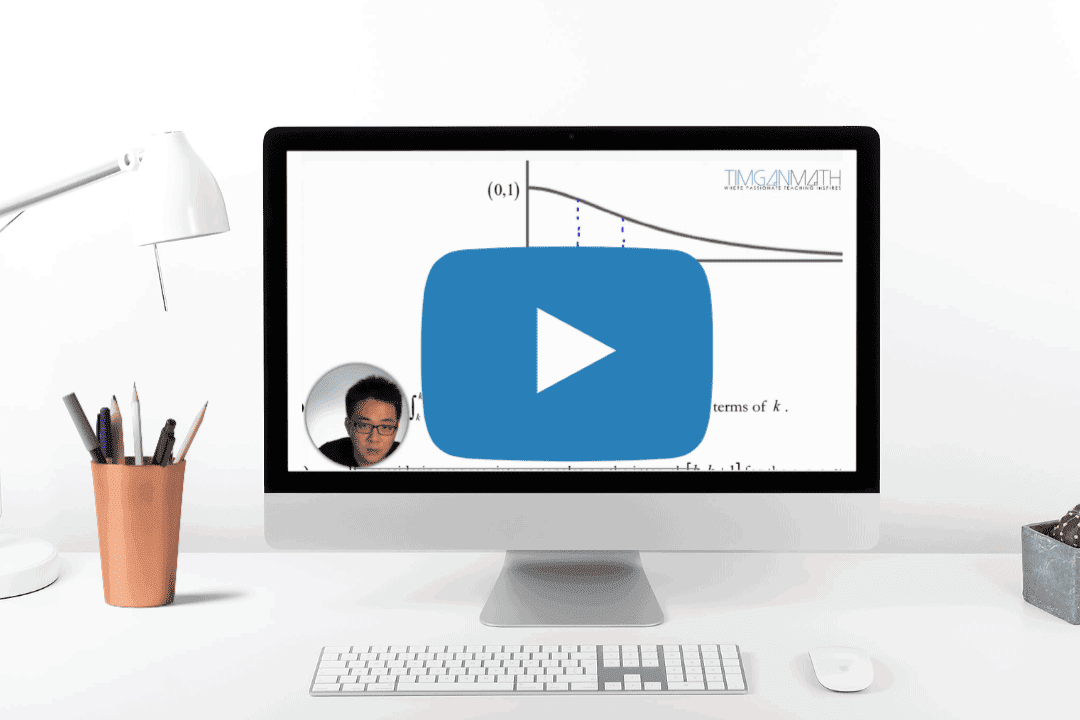
2017 HCI P1 Q7
2017 HCI P1 Q7 (i) It is given that $ln y=2sin x$. Show that $frac{{{text{d}}^{2}}y}{text{d}{{x}^{2}}}=-yln y+frac{1}{y}{{left( frac{text{d}y}{text{d}x} right)}^{2}}$. [2] (ii) Find the first four terms of the Maclaurin series for

2017 HCI P1 Q7 (i) It is given that $ln y=2sin x$. Show that $frac{{{text{d}}^{2}}y}{text{d}{{x}^{2}}}=-yln y+frac{1}{y}{{left( frac{text{d}y}{text{d}x} right)}^{2}}$. [2] (ii) Find the first four terms of the Maclaurin series for

2019 NJC P1 Q4 (i) Show that $frac{p{{x}^{2}}+left( 4p-q right)x+left( 4p+q right)}{left( 1-x right){{left( 2+x right)}^{2}}}=frac{p}{1-x}+frac{q}{{{left( 2+x right)}^{2}}}$. [1] (ii) Find the values of $p$, $q$ and $r$ such that

2017 AJC P1 Q5 A curve $C$ has equation $y=text{f}left( x right)$. The equation of the tangent to the curve $C$ at the point where $x=0$ is given by $2x-ay=3$

2009 TPJC P1 Q11 (i) Given that $y={{text{e}}^{{{tan }^{-1}}x}}$, find $frac{text{d}y}{text{d}x}$ and show that $left( 1+{{x}^{2}} right)frac{{{text{d}}^{2}}y}{text{d}{{x}^{2}}}+left( 2x-1 right)frac{text{d}y}{text{d}x}=0$. Obtain the Maclaurin series for ${{text{e}}^{{{tan }^{-1}}x}}$ up to and including

2015 MJC P1 Q7 (a) Given that $text{f}left( x right)={{text{e}}^{sin ax}}$, where a is a non-zero real constant, find $text{f}left( 0 right)$, $text{f{ }’}left( 0 right)$ and $text{f{ }”}left( 0

2017 JJC P1 Q10 A laser from a fixed point $O$ on a flat ground projects light beams to the top of two vertical structures $A$ and $B$ as shown

These Ten-Year-Series (TYS) worked solutions with video explanations for 2011 A Level H2 Mathematics Paper 1 Question 4 are suggested by Mr Gan. For any comments or suggestions please contact

2023 NJC P1 Q3 It is given that $y={{left( 1+{{tan }^{-1}}x right)}^{2}}$. (a) Prove that ${{left( 1+{{x}^{2}} right)}^{2}}frac{{{text{d}}^{2}}y}{text{d}{{x}^{2}}}+2xleft( 1+{{x}^{2}} right)frac{text{d}y}{text{d}x}=2$. [3] (b) Obtain an equation relating $frac{{{text{d}}^{3}}y}{text{d}{{x}^{3}}}$, $frac{{{text{d}}^{2}}y}{text{d}{{x}^{2}}}$ and $frac{text{d}y}{text{d}x}$.

2023 HCI P1 Q2 In the triangle $PQR$, angle $PQR=frac{pi }{3}$ radians and angle $PRQ=frac{pi }{3}-theta $ radians, where $theta $ is small enough for ${{theta }^{3}}$ and higher powers

2022 NYJC Promo Q7 (a) A curve has equation $y=sqrt{1+{{tan }^{-1}}x}$. Show that $yfrac{{{text{d}}^{2}}y}{text{d}{{x}^{2}}}+{{left( frac{text{d}y}{text{d}x} right)}^{2}}=-frac{x}{{{left( 1+{{x}^{2}} right)}^{2}}}$.By further differentiation, obtain the Maclaurin series for $y$, up to and including